Making Your Jeans Blue Takes a Lot of Water—This New Process Could Change That

You’ve read the headlines about how polluting fashion is, how brands have been guilty of greenwashing products in their marketing, and how shoppers are demanding sustainability more than ever. It’s not just newcomers building conscious businesses, being vocal, and advocating for change in the industry. More and more we’re seeing heritage brands course-correct, investing their resources and know-how into real innovation. The latest contribution comes from one of the most well-known American denim companies, and it’s addressing one of the most contaminating steps that goes into making a pair of jeans.
Wrangler decided to tackle indigo dyeing—“because it has the most significant visual and ecological impact on the planet,” Roian Atwood, the brand’s senior director of sustainability, tells Glamour in Valencia, Spain, during a visit to the factories that are producing its new collection. (Disclosure: Wrangler paid for my travel and accommodations for the purpose of reporting this story.) “When you see a blue river ecosystem, there’s no way morally, ethically, and from a good corporate citizenship standpoint that that is okay.” Documentaries like 2016’s RiverBlue and 2018’s Fashion’s Dirty Secrets have brought attention to the issue of water waste and contamination as a direct result of clothing manufacturing at a global level. Still, when something as popular and enduring as denim requires thousands of gallons of water just to dye it its signature blue, you need more than awareness to address the problem.
“The reality is that, if we can cut it off at the source, if we can create a technology that has no waste water and that minimizes the water consumption, we’ve solved for a really big industry issue,” Atwood says. That’s what two years of research, testing, and collaboration among the iconic Americana brand, Texas Tech University, Gaston Systems, and the Spain-based fabric manufacturer Tejidos Royo hopes to be bringing to the table.
Wrangler is introducing Indigood, which it bills as its most sustainable denim to date and the first to use a foam-dyeing technology. According to the brand, the process uses 90 percent fewer chemicals and 60 percent less energy than the traditional dyeing method, and it creates zero water waste.
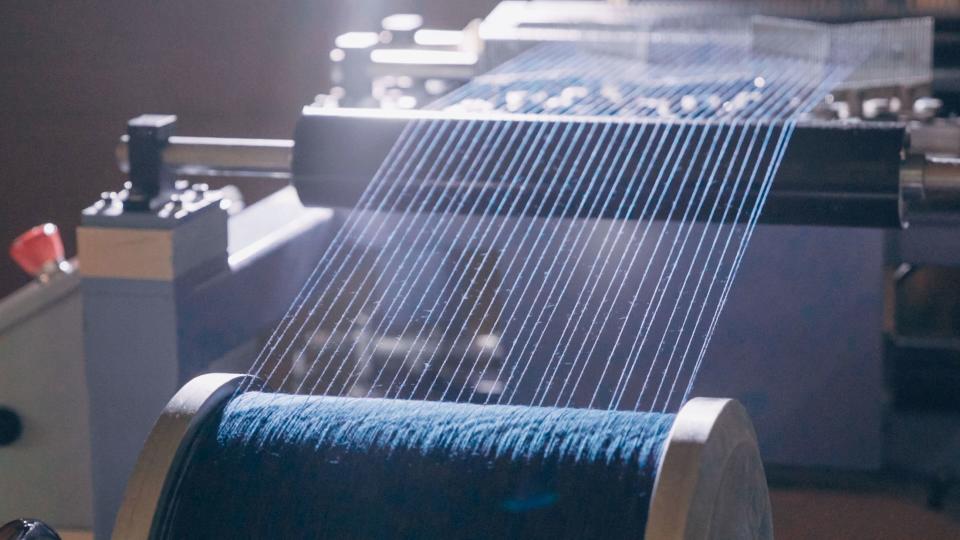
How it works: An indigo foam solution (which is made from indigo powder, a foaming agent, and deoxygenated water) is applied dry onto cotton yarn to dye it blue, and the yard is encased in nitrogen to prevent the oxygenation of indigo. (In the traditional method, the yarn would be continually washed with chemicals in between the actual dyeing steps to slow down this process.) This eliminates the need for the repeat soaks and chemical baths that contribute to those staggering statistics about the water usage needed for a single pair of jeans. The only time water is used is to make the indigo foam solution. The whole dyeing process, as it was at Tejidos Royo, goes from 14 steps to just two.
As a technique, foam dyeing isn’t new. It’s been used on textiles for years—not on denim, though, and mostly to add color to fabric that had already been dyed. Last spring Tejidos Royo announced that, with the help of Texas Tech University and Gaston Systems, it had successfully adapted it for indigo; a few months later Wrangler invested in this method and partnered with the Spanish textile maker to bring it to market.
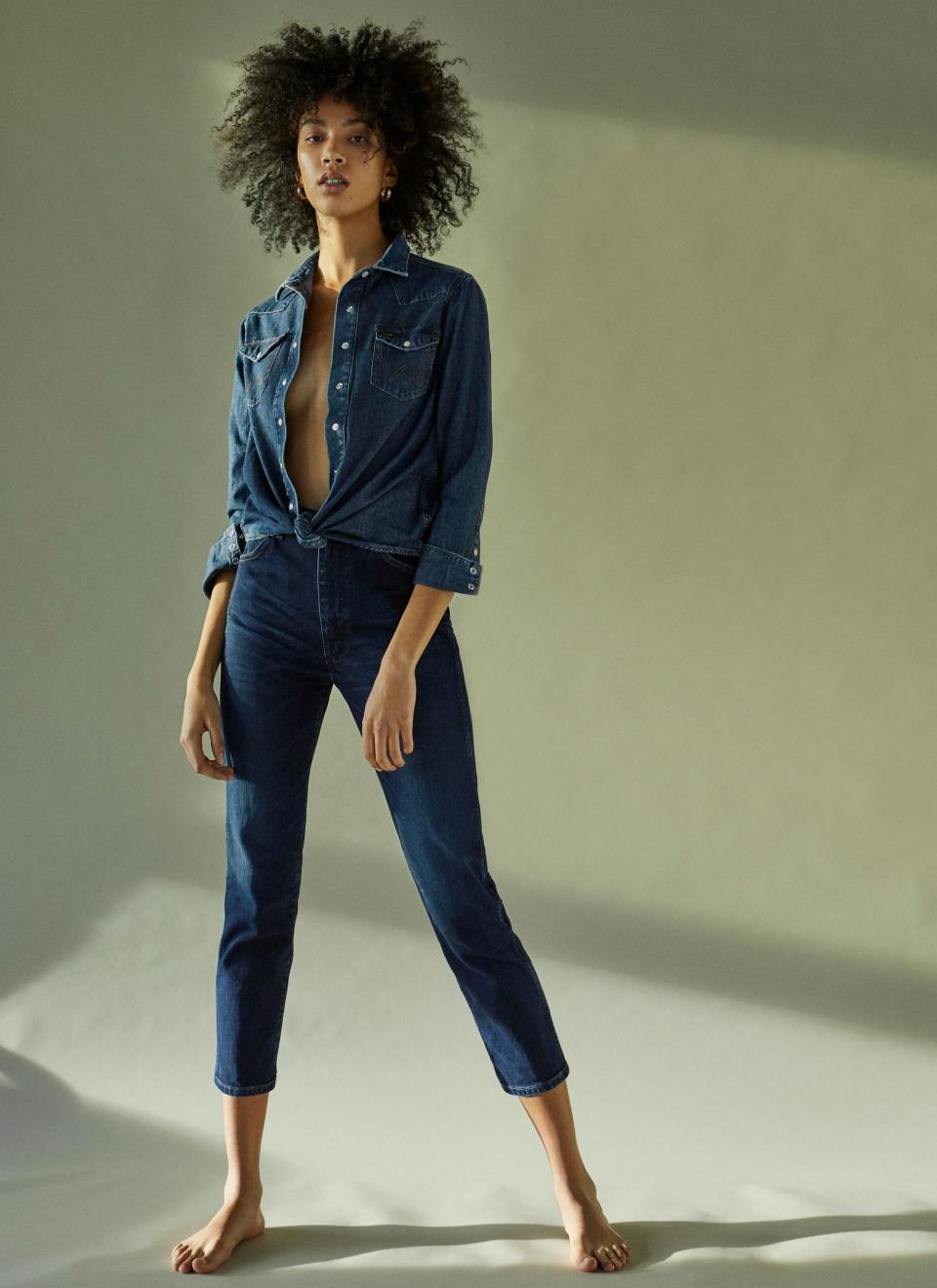
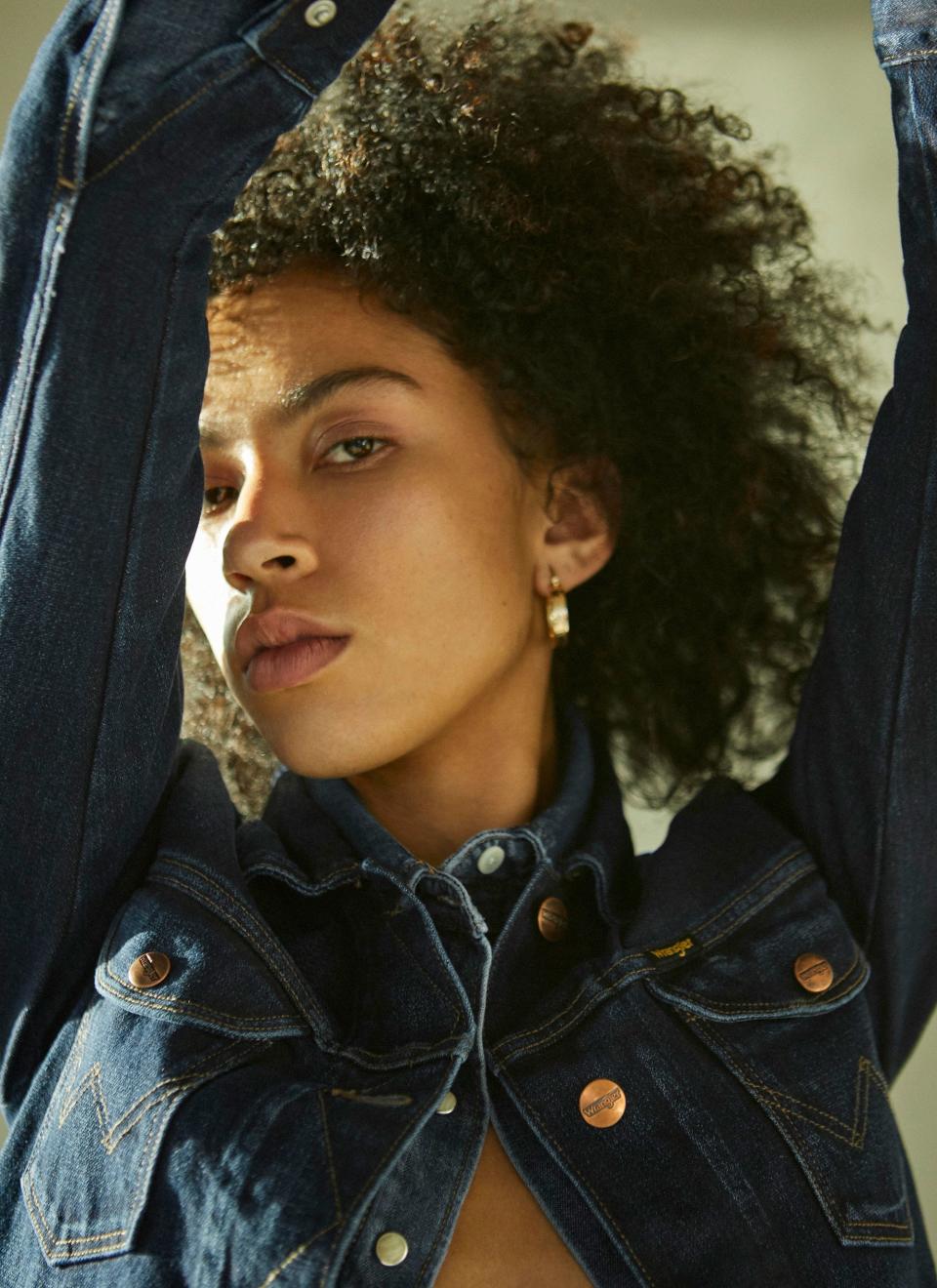
Indigood will first appear in Wrangler’s Icons range, a three-piece capsule that debuted in spring 2019 inspired by the brand’s most beloved heritage pieces: the 11WWZ Jean ($149, available in sizes 24 through 32), the 124WJ Jacket ($169, available in sizes XS through XL), and the 27WW Western Shirt ($109, available in sizes XS through XL). The products launch today on Wrangler’s e-commerce site and will be released to its wholesale accounts in August.
The foam dye isn’t the only part of this process that’s sustainably minded. The yarn in this fabric is sourced from Hilaturas Ferre, another Spanish company that specializes in premium upcycled and postconsumer materials; almost a third of each Indigood Icons product is made from recycled cotton. Once it goes through the dyeing process at Tejidos Royo, it’s sent to Tunisia, where it’s washed and finished using energy-efficient systems from Jeanology, which include laser, ozone, and nanobubble technologies.
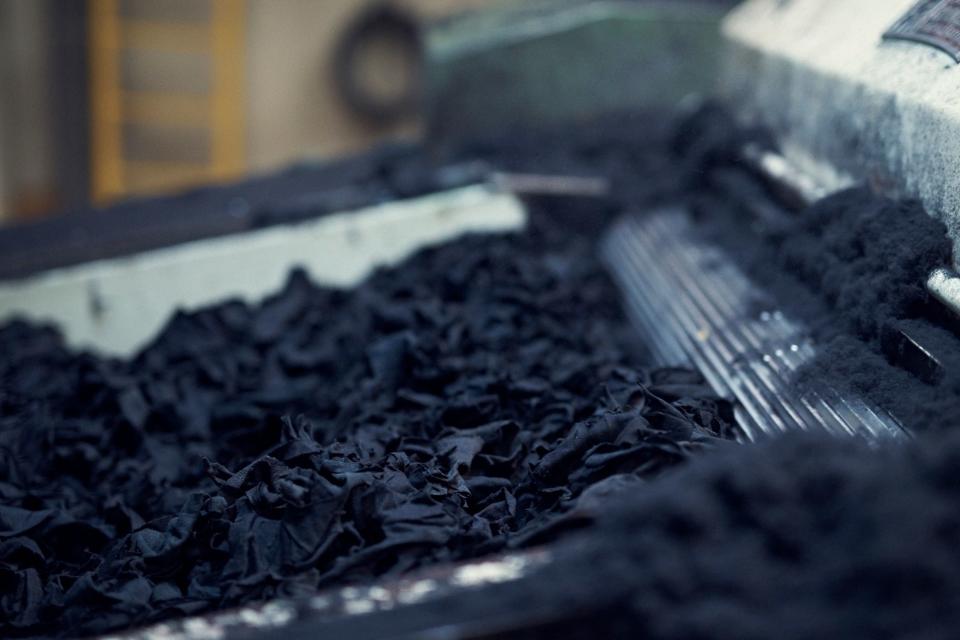
In terms of feel, the foam-dyed fabric isn’t any different from denim that’s been dyed using traditional methods. The Indigood Icons pieces do feel a little bit stiffer and granier than regular denim—but that was a creative choice unrelated to the dyeing process. “Nostalgia was a big part of how we designed the fabric,” says Sean Gormley, Wrangler’s creative director. “We wanted it to have a kind of nineties dense, thick feeling.” The texture is inspired by a shirt in the brand’s archives, and the fabric is meant to be worn in over time.
Wrangler’s sustainability journey has become more public in recent years, as it’s become more transparent about its efforts and products through its We Care platform and its Science and Conservation program. But for Gormley the message has been communicated through the product for much longer than that. He likes to wear Wrangler pieces that are decades old, to illustrate how long-lasting and hard-wearing its denim is. “It’s a really nice way to talk about a product,” he says. “It’s a beautiful jacket. It still works for me. And it’s not disposable—it can go through generations.”
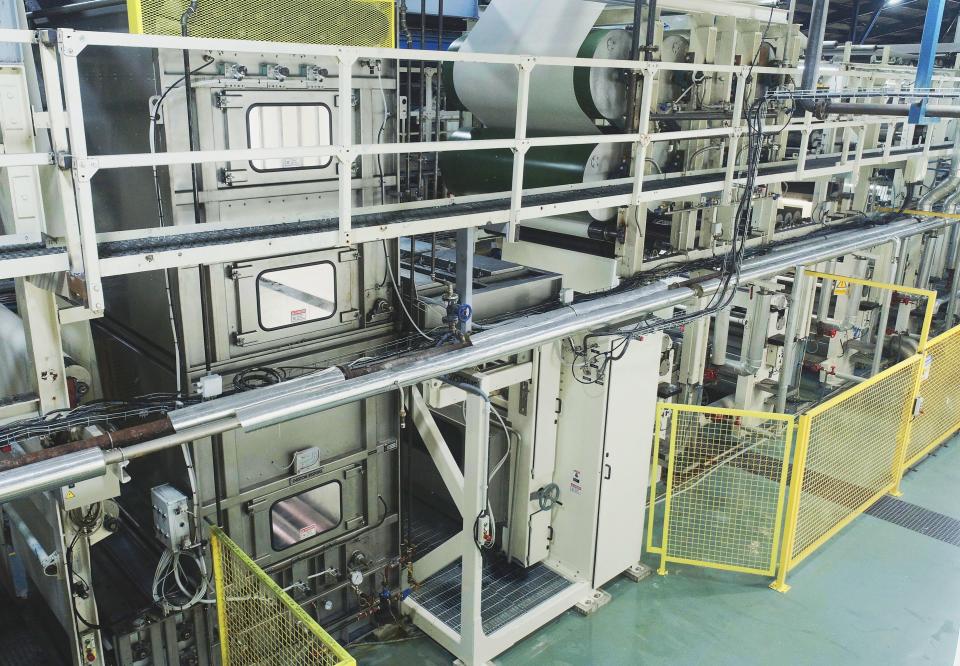
Atwood believes sustainability ties back to Wrangler’s roots in the cowboy community too: “If you’re that guy who sat on the saddle on the Western range and you’re looking out across the landscape, you inherently begin to develop a relationship with land. In your code of ethics, you develop a caring that’s hard to express and hard to understand. But as I think about how we’ve come off the saddle as a brand and about how we want to talk to the world, that’s exactly the emotion and value we want to bring forward with good stewardship, with this idea of doing the right thing.”
In the grand scheme of denim innovations, Atwood says, it’s difficult to compare foam dyeing to other major developments in the industry. But “on the scale of changing an industry, it’s like what the Internet has done for retail. Of course, consumers aren’t interacting with the foam-dye machine, but just as the Internet fundamentally changed how clothes are bought and sold, foam dye fundamentally changes the indigo-dyeing process.”
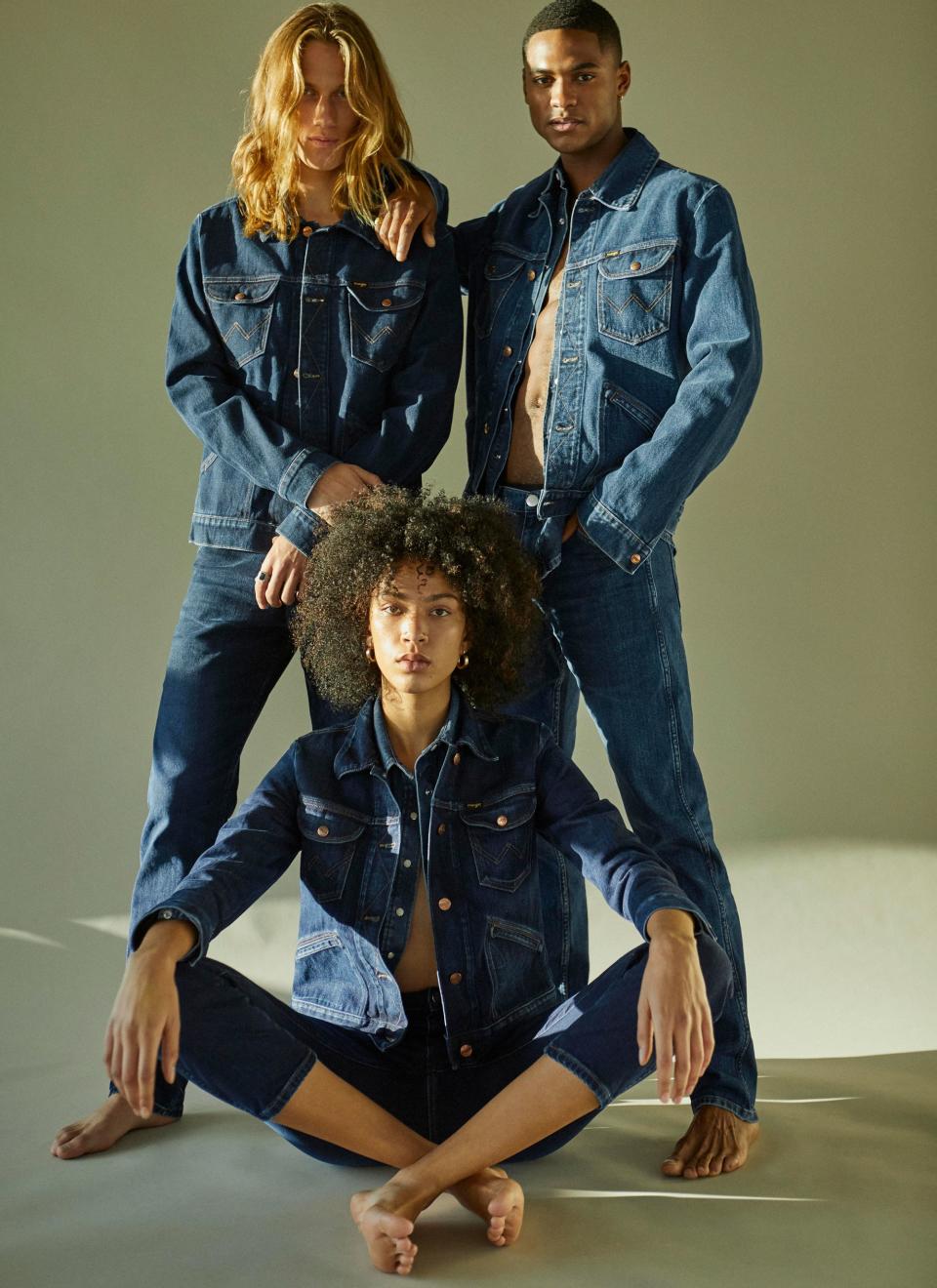
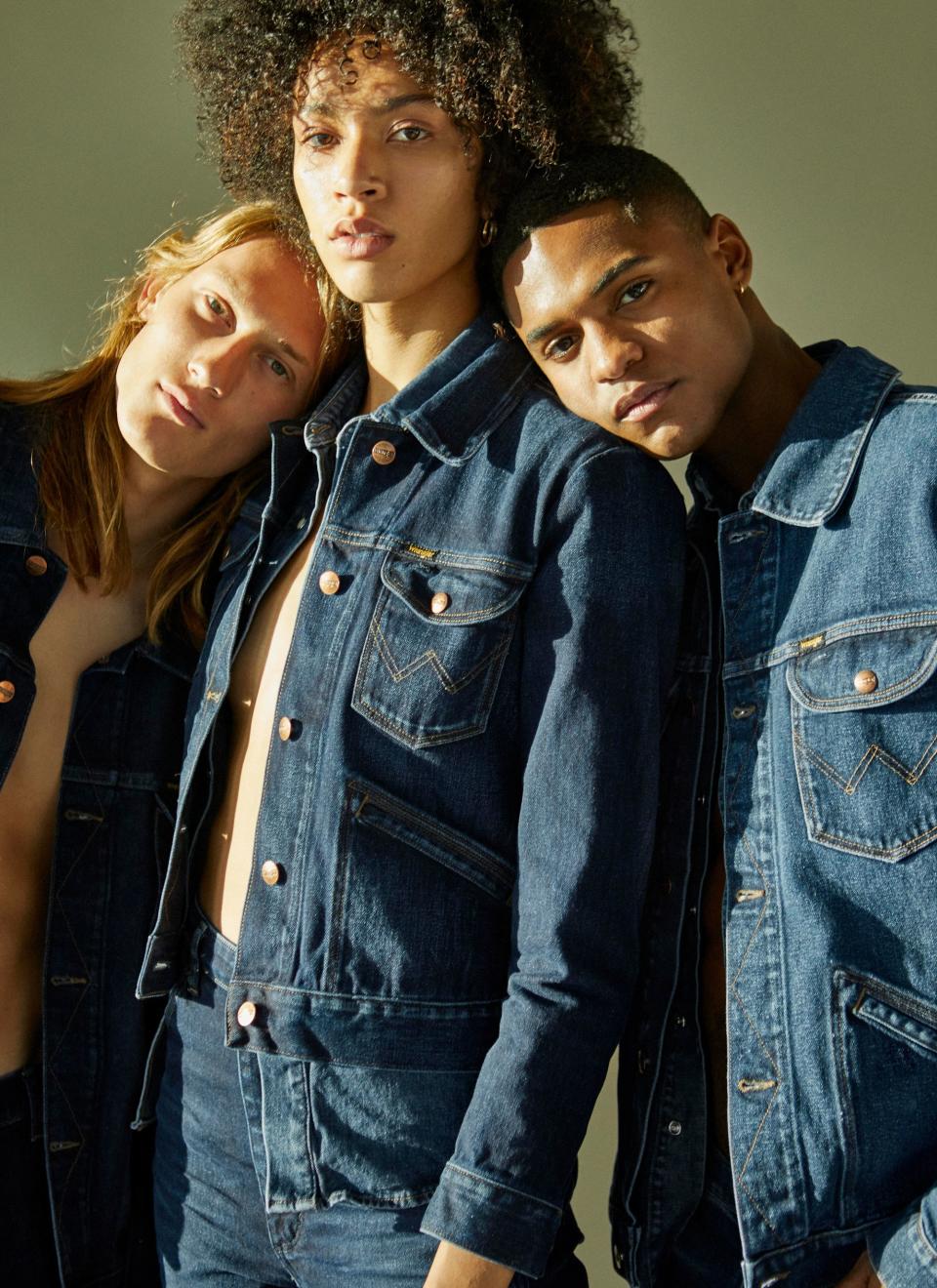
Indigood Icons is “step one,” Gormley says. The plan is to roll out foam dyeing into other categories, bringing down the price point for its higher-volume pieces, which could mean moving production to Asia.
“It’s really important to us that sustainability not be something that’s elite,” says Atwood. “We want to democratize sustainable attributes in products. There’s a consumer out there that cares, but we never want to pit making a decision between personal well-being and a sustainable attribute in product. This is something we want to put into all products universally.”
Wrangler’s Indigood Icons collection is available to purchase now.
Ana Colón is the style editor at Glamour. Follow her at @anavcolon.
Originally Appeared on Glamour

